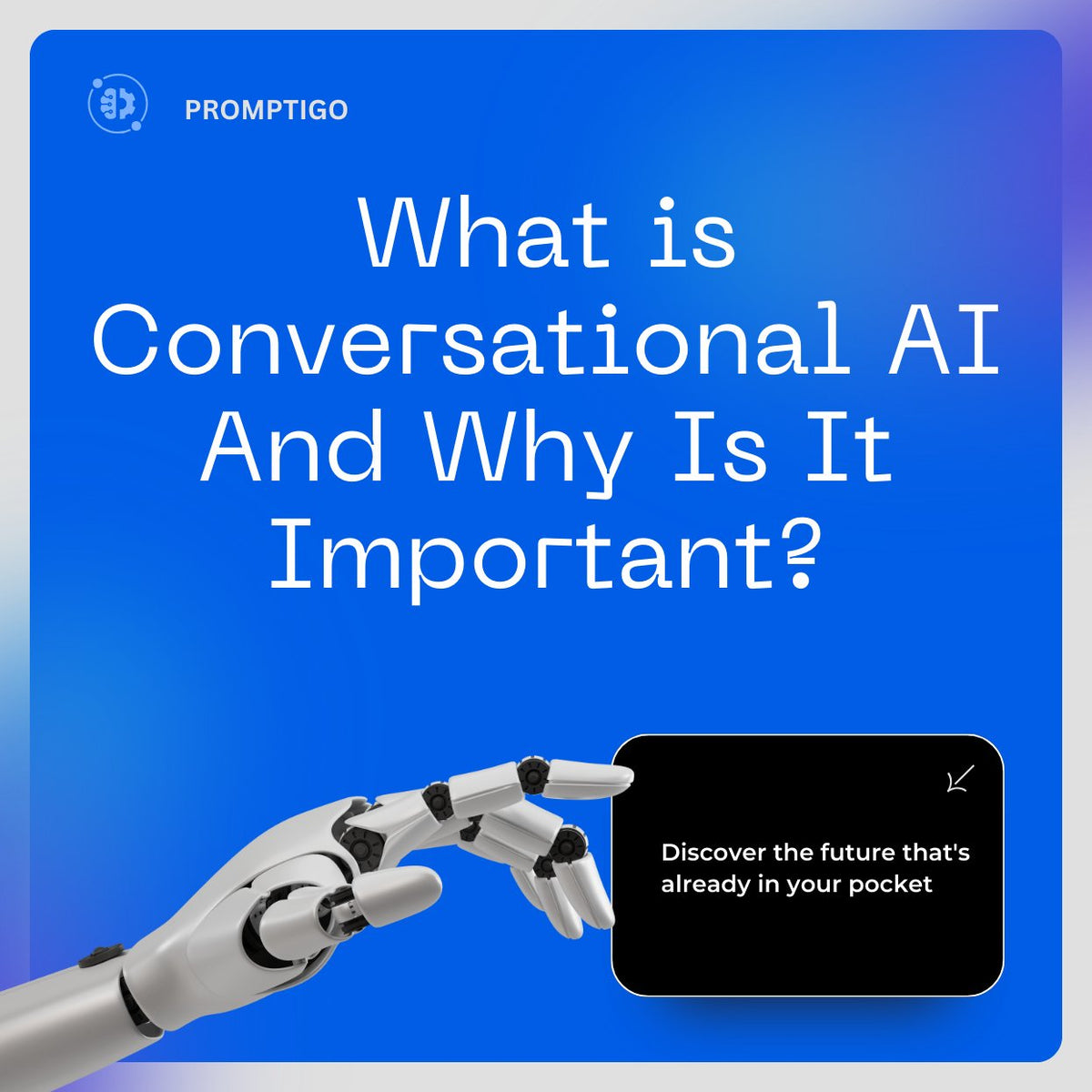
What is Conversational AI And Why Is It Important?
|
|
Time to read 5 min
|
|
Time to read 5 min
Conversational Artificial Intelligence, or Conversational AI for short, is a groundbreaking technology that endows computers with the ability to comprehend, fabricate, and respond to human language. It's a technology transforming how we interact with digital devices and services, making them more user-friendly, intuitive, and efficient.
In essence, Conversational AI is an advanced form of computing that facilitates human-like dialogue between machines and humans. It's a blend of several AI-related technologies, including Natural Language Processing (NLP), Machine Learning (ML), and data mining, enabling computers to understand, process, and respond to human language naturally and intuitively.
The potential applications of Conversational AI are vast, ranging from customer service chatbots and voice-activated virtual assistants to more complex systems capable of supporting business intelligence applications, HR processes, and even healthcare services.
While traditional chatbots are rules-based systems with predefined responses, conversational AI takes this concept to the next level by incorporating advanced AI capabilities. Rather than being limited to a preprogrammed set of reactions, casual AI systems can understand and respond to a wide array of user inputs in a flexible and contextually relevant manner.
In other words, conversational AI can parse and understand the nuances of human language, making it far more versatile and capable than traditional chatbots. This capability to understand and generate human-like language sets conversational AI apart from other AI technologies.
The significance of conversational AI technology in today's digital landscape cannot be overstated. As customers increasingly seek instant, personalized interactions, companies use conversational AI to meet these expectations.
Conversational AI has the potential to significantly improve the customer experience. It can provide immediate, personalized responses to customer queries, automate routine tasks, and even offer product recommendations based on a user's preferences and behavior.
By doing so, conversational AI can reduce customer wait times, increase customer satisfaction, and ultimately drive business growth. It's no surprise, then, that an increasing number of businesses are incorporating conversational AI into their customer service strategies.
Beyond customer service, conversational AI can also streamline business operations. By automating routine tasks, conversational AI can free employees to focus on more complex, value-adding work. This can increase productivity, reduce operational costs, and improve business efficiency.
Finally, conversational AI can support business growth by providing valuable insights into customer behavior. By analyzing customer interactions, businesses can gain a deeper understanding of their customers' needs, preferences, and behaviors. This can inform marketing strategies, product development, and other business decisions, ultimately driving growth and profitability.
Four primary components contribute to the functionality of conversational AI systems:
NLP is a critical aspect of conversational AI that allows systems to understand and interpret human language. It involves various processes, including lexical analysis (breaking down text into individual words or phrases), syntax and semantic analysis (understanding the relationship between words and phrases and the overall meaning of the text), and sentiment analysis (analyzing the emotional tone of the text).
ML is a branch of AI that enables systems to learn from past experiences. In conversational AI, ML algorithms are used to identify patterns in conversational data, allowing the system to continuously improve its comprehension of and responses to human language.
Data mining is used in conversational AI to uncover patterns and insights from everyday data. This information can enhance the system's functionality and improve its ability to understand and respond to user inputs.
ASR is a technology that converts spoken language into written text. This is particularly important in voice-activated conversational AI systems, allowing them to understand and respond to voice inputs.
The process of conversational AI involves several key steps:
Conversational AI has found applications across a wide range of industries. Here are a few examples:
In the healthcare industry, conversational AI can help patients describe their conditions online, bypassing wait times. It can also automate appointment scheduling medication reminders and provide health tips and advice.
In the retail industry, conversational AI can provide 24/7 customer support, helping businesses meet customer demands even during peak times or holidays. It can assist with product recommendations, order tracking, and other customer service tasks.
In the banking sector, conversational AI can handle complex requests, provide accurate responses, and offer personalized financial advice. It can also automate routine transactions, such as balance inquiries and fund transfers.
In the HR sector, conversational AI can automate the recruitment process, screening candidate credentials and scheduling interviews. It can also respond to employee queries, providing information on company policies, benefits, and other HR-related topics.
The future of conversational AI looks promising, with advancements in AI and ML technologies expected to further enhance its capabilities. As businesses continue to recognize the value of conversational AI, we can expect to see more innovative applications of this technology across industries.
In particular, the emergence of generative AI – a form of AI that can generate new content or ideas – is expected to significantly enhance the capabilities of conversational AI. By enabling casual AI systems to create more human-like, contextually relevant, and personalized responses, generative AI promises to take conversational AI to the next level.
Ultimately, the future of conversational AI hinges on our ability to create systems that can truly understand and respond to human language naturally and intuitively. As we continue to make strides in this direction, the potential of conversational AI to transform our interactions with digital devices and services is inspiring.







